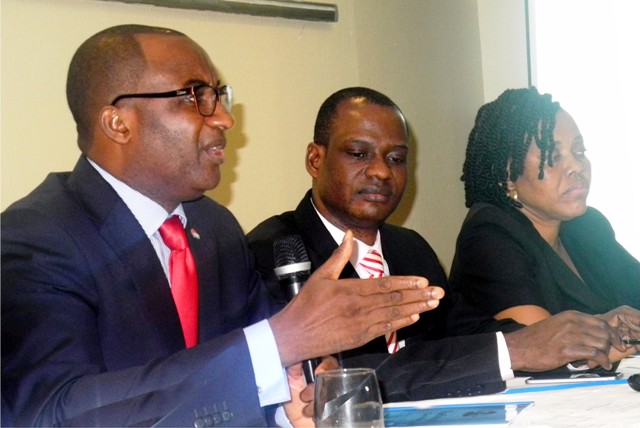Business
Economist Advises States To Consolidate 2017 Budget

An economist, Dr Aminu Usman, has advised state and local governments to consolidate the Federal Government’s 2017 budget to achieve growth and development.
Usman, a lecturer at the Department of Economics, Kaduna State University, gave the advice in an interview with newsmen in Abuja, yesterday.
He said one major problem of budgeting in the country was that people equate the federal government budget with state budget.
“But the two are different; Budget will only start being meaningful and have a positive impact on the economy if we begin to consolidate the federal government budget with that of states and local governments.
“The lower levels of government are closer to the people and their projects have more direct bearing on the common man,’’ he said.
According to him, budget conceptualisation, processing and implementation should be in a coordinated manner for meaningful impact and well-rounded economic growth.
Usman, however, advised the federal government to begin the implementation of capital component of the 2017 budget in earnest.
He said that the implementing of the budget would likely have impact on inflation.
The don said for the budget to impact on inflation the pattern of disbursement should favour local contractors and increasing food supplies.
“Paying local contractors will boost consumption which will increase domestic production of goods and services as well as create employment,’’ he said.
On the latest inflation rate, the don said that the figures were still on the high side despite the efforts of the government to bring it down.
According to the National Bureau of Statistics (NBS), the country’s inflation dropped to 16.25 per cent in May from 17.24 per cent in April.
This is the fourth consecutive decline in the rate of inflation since January.
Usman explained that the Consumer Index Price (CPI) only dropped on month-on-month basis but still generally high.
“The issue of inflation is very clear that prices are up and remain up in the last one year. It’s normal to see slight movement month-on-month because inflation is a dynamic phenomenon.
“The slight improvement reported is perhaps as a result of market adjustment to price rises and shrinking demand due to higher prices.
“The government will do well to address the source of the persistent inflationary pressure on prices of necessities especially food, drugs, energy,’’ he said.
Business
Fidelity Bank To Empower Women With Sustainable Entrepreneurship Skills, HAP2.0
Business
President Tinubu Approves Extension Ban On Raw Shea Nut Export
Business
Crisis Response: EU-project Delivers New Vet. Clinic To Katsina Govt.
-

 News2 days ago
News2 days agoAmend Constitution To Accommodate State Police, Tinubu Tells Senators
-

 Politics2 days ago
Politics2 days agoSenate Urges Tinubu To Sack CAC Boss
-

 News2 days ago
News2 days agoDisu Takes Over As New IGP …Declares Total War On Corruption, Impunity
-
Business2 days ago
President Tinubu Extends Raw Shea Nuts Export Ban To 2027
-
Business2 days ago
Crisis Response: EU-project Delivers New Vet. Clinic To Katsina Govt.
-
Business2 days ago
President Tinubu Approves Extension Ban On Raw Shea Nut Export
-
Sports2 days ago
NDG: Rivers Coach Appeal To NDDC In Talent Discovery
-
Rivers2 days ago
Etche Clan Urges Govt On Chieftaincy Recognition

